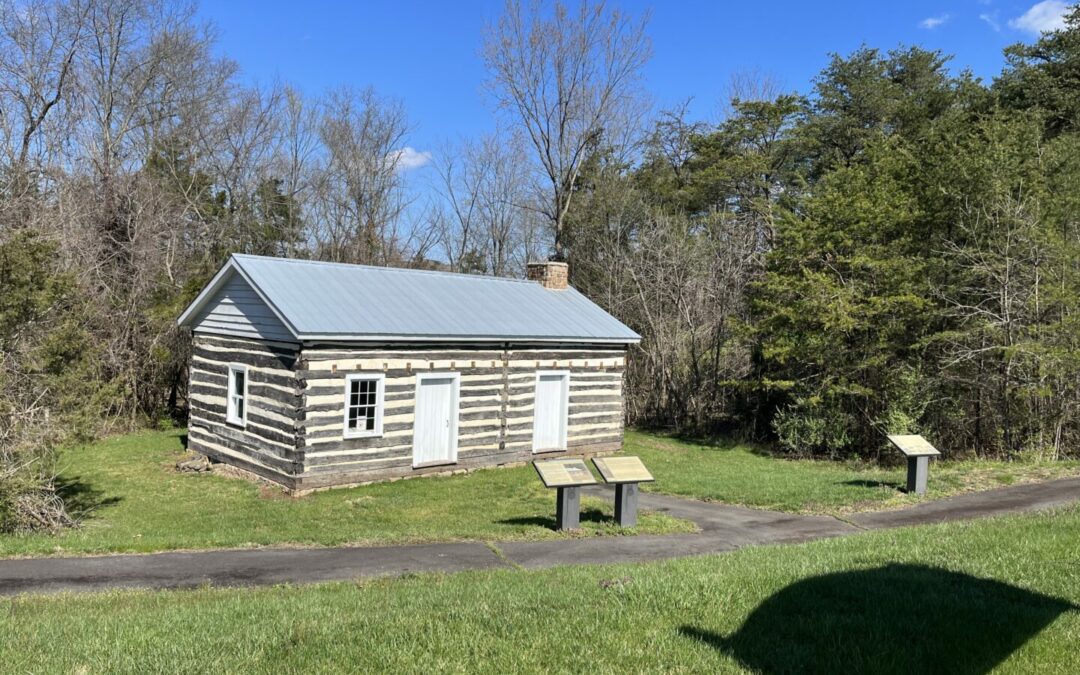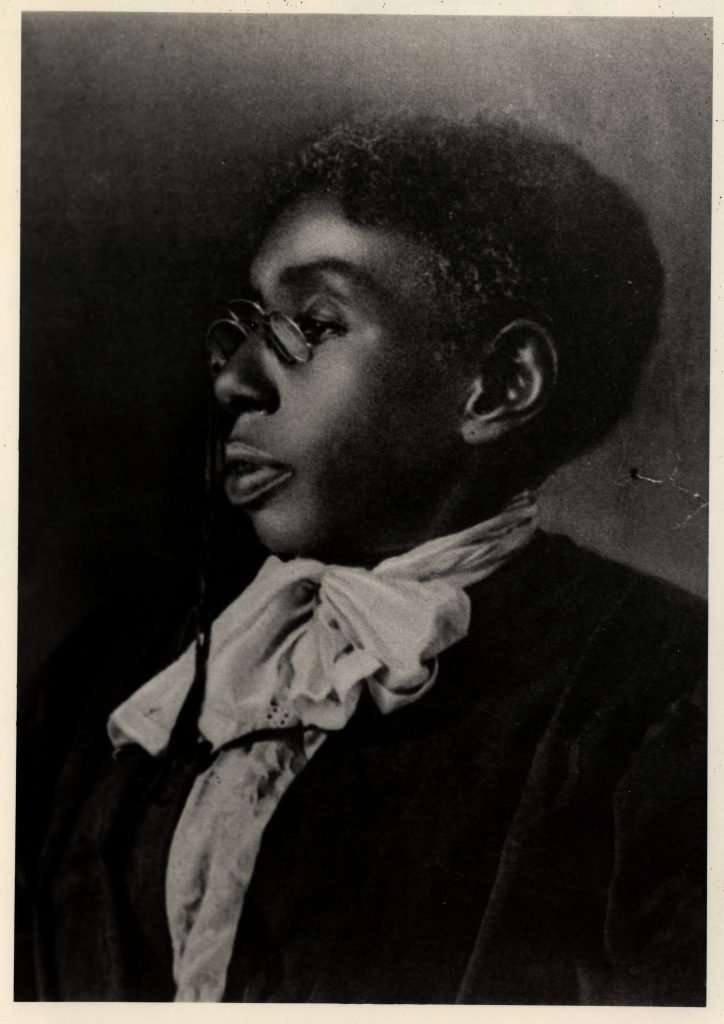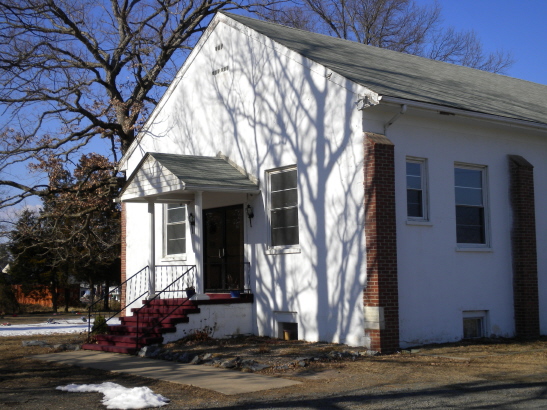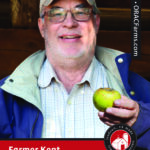In Loudoun County, traces of history reverberate in its historical structures, markers, and written records. While we can read about and physically connect with the remnants of the past, certain elements remain shrouded, requiring deeper exploration. A prime example is the hidden village of Conklin, located in the southeastern corner of the county. Historically recognized for its predominantly African American population, the substantial growth of housing in Loudoun has obscured a significant portion of the once-visible, historic village.
Established around 1810 by Reuben Settle, Jr. who acquired 142 acres of land, he, along with fellow white farmers, carved the settlement out of the wilderness long before it received an official name. Although the hamlet was officially recognized as Conklin in the early 1930s, records from as early as 1892 referred to the area as Conklin. The name Conklin came from John and Mary Conklin, a couple from Pennsylvania who acquired 100 acres in 1871 and wanted to cultivate the land. The rural community extended from a point between Elk Lick Road (its main street) and Gum Spring Road on the west side (Route 659) to a few blocks south on Bull Run Post Office Road (Route 621). The eastern border accommodated land owned by the African American Allen family, running north along Elk Lick Road to the Elk Lick Bridge over the present-day South Riding golf course, with Elk Lick continuing to route 50.
Conklin was originally a farming community, inhabited by both whites and freed African Americans, many of whom traveled from nearby areas such as Fairfax and Prince William counties after being granted freedom post-Civil War. It was home to a general store—and then post office—that was established by the Conklins and the Conklin School for Colored Children, which was built in 1872. While the majority of African Americans in Conklin were subsistence farmers, tending to chickens, turkeys, hogs, and occasionally, beef cattle, others traded in butter and grains or provided services like laundry and road repair. One notable figure and resident, Phoebe Brooks, was a former enslaved midwife from Oatlands. Phoebe played a crucial role in delivering babies, both black and white, in the area.
Another was Charles Dean, an African American man previously enslaved by the Settle family. Charles was willed the 142-acre property in the 1850s by the Settle family, which included the Settle-Dean cabin, a historic structure that members of the Dean family lived in while enslaved and continued to live in after being freed. In total, the Dean family occupied the property for well over 100 years. In 1944, the property was divided and the family lived on a 25-acre tract. It wasn’t until the 1970s when the next generation of Deans built another home along Braddock Road, that the property went unoccupied. Since the cabin had been substantially altered over the years and was already deteriorating, it fell into disrepair. It would have been razed after being sold by the Deans to Toll Brothers in 2001, but the intervention of local citizens nullified that process. The Settle-Dean cabin was photo-documented, dismantled, and relocated west of the original location, where it still stands today on the corner of Braddock Road and Loudoun County Parkway, and remains one of the last remaining structures of historic Conklin.
Near the turn of the 19th century, Charles Dean donated a portion of his acreage for the establishment of Prosperity Baptist Church, built in 1899 with the help of his relative, Jennie Dean, founder of the Manassas Industrial School for Colored Youth. Though the building was lost to a fire in 1951, the rebuild was completed in 1972 and still stands today.
Outside of the Settle-Dean cabin, the current Prosperity Baptist Church, and a few remaining homes, there isn’t much left of what once was the community of Conklin. However, while most of the physical structures may be gone, descendants of both white and African American families, such as the Settle, Jett, Dean, Saffer, and Allen families, still inhabit Loudoun, Fairfax, and Prince William Counties, as living history of village lost.
Photo and history credit: Edwin Washington Project, Black History Committee of the Friends of the Thomas Balch Library, Conklin Village Project, Roeder, Larry. A History of Conklin Village, Loudoun County, 2014, Loudoun County Public Schools, Historical Marker Database, Larry Roeder
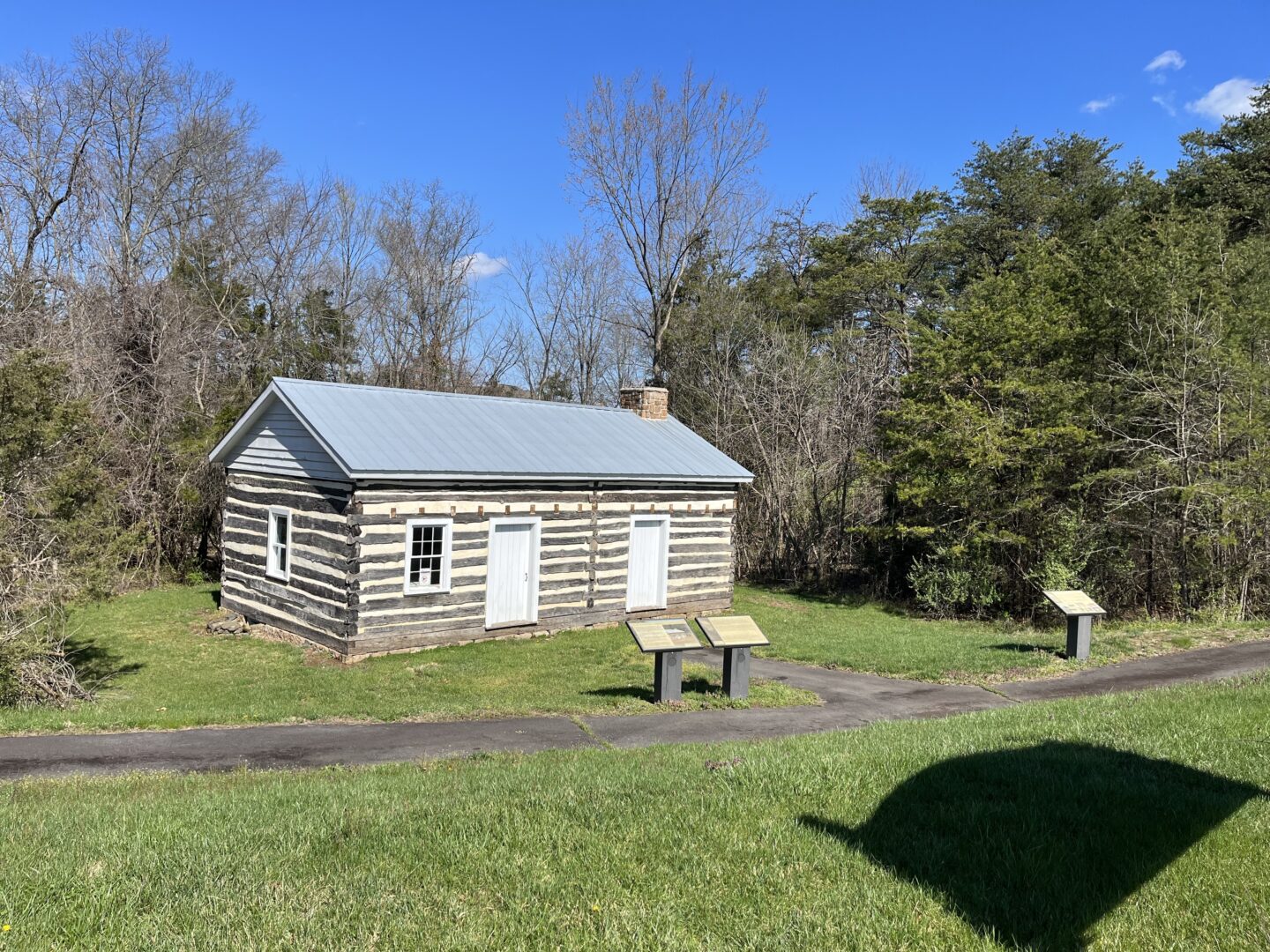
The Settle-Dean Cabin in its restored state. The cabin is located at Loudoun County Parkway and Braddock Road
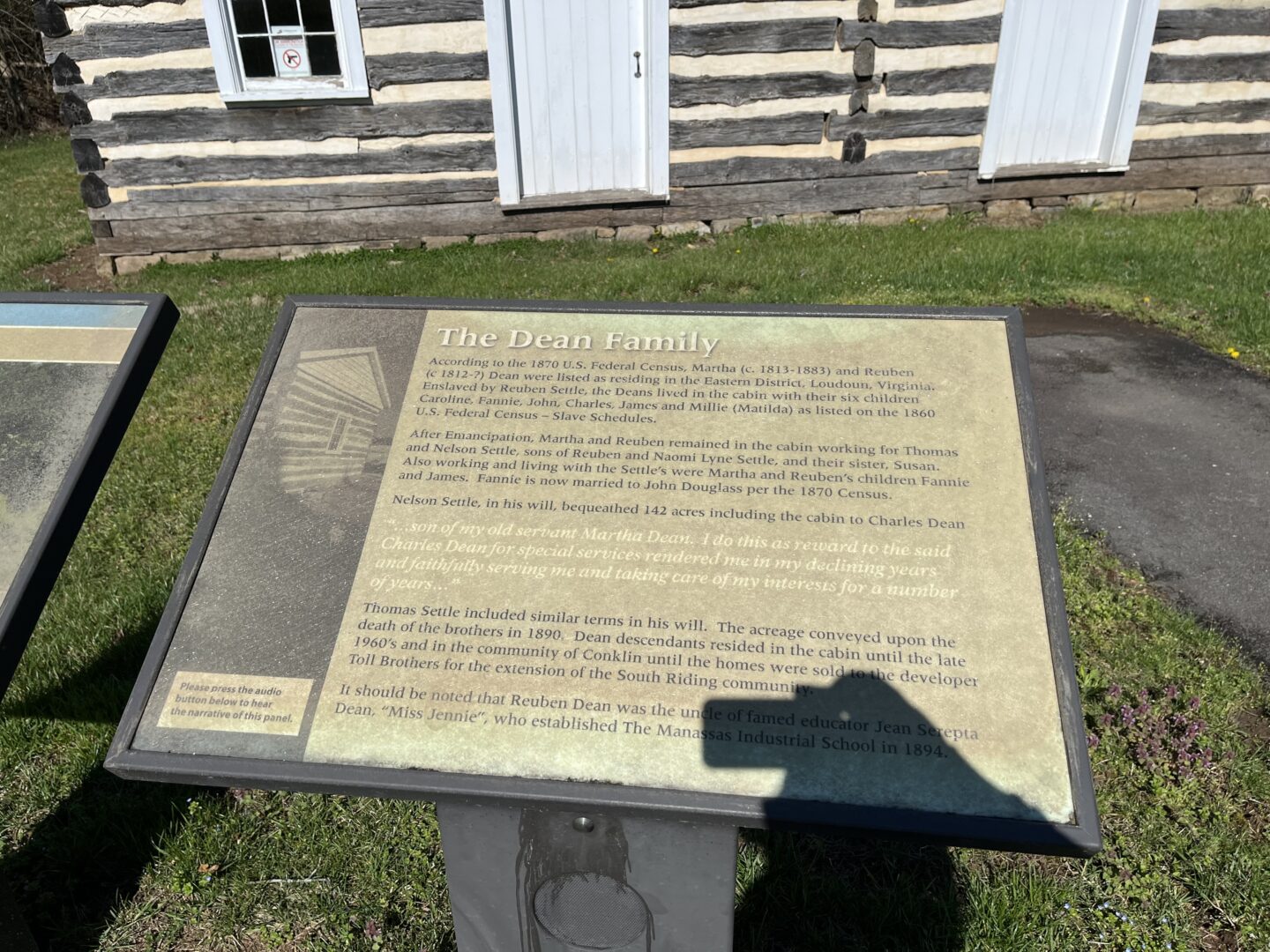
The Dean Family Marker at the Settle-Dean Cabin site. This marker provides a brief history of the Dean family
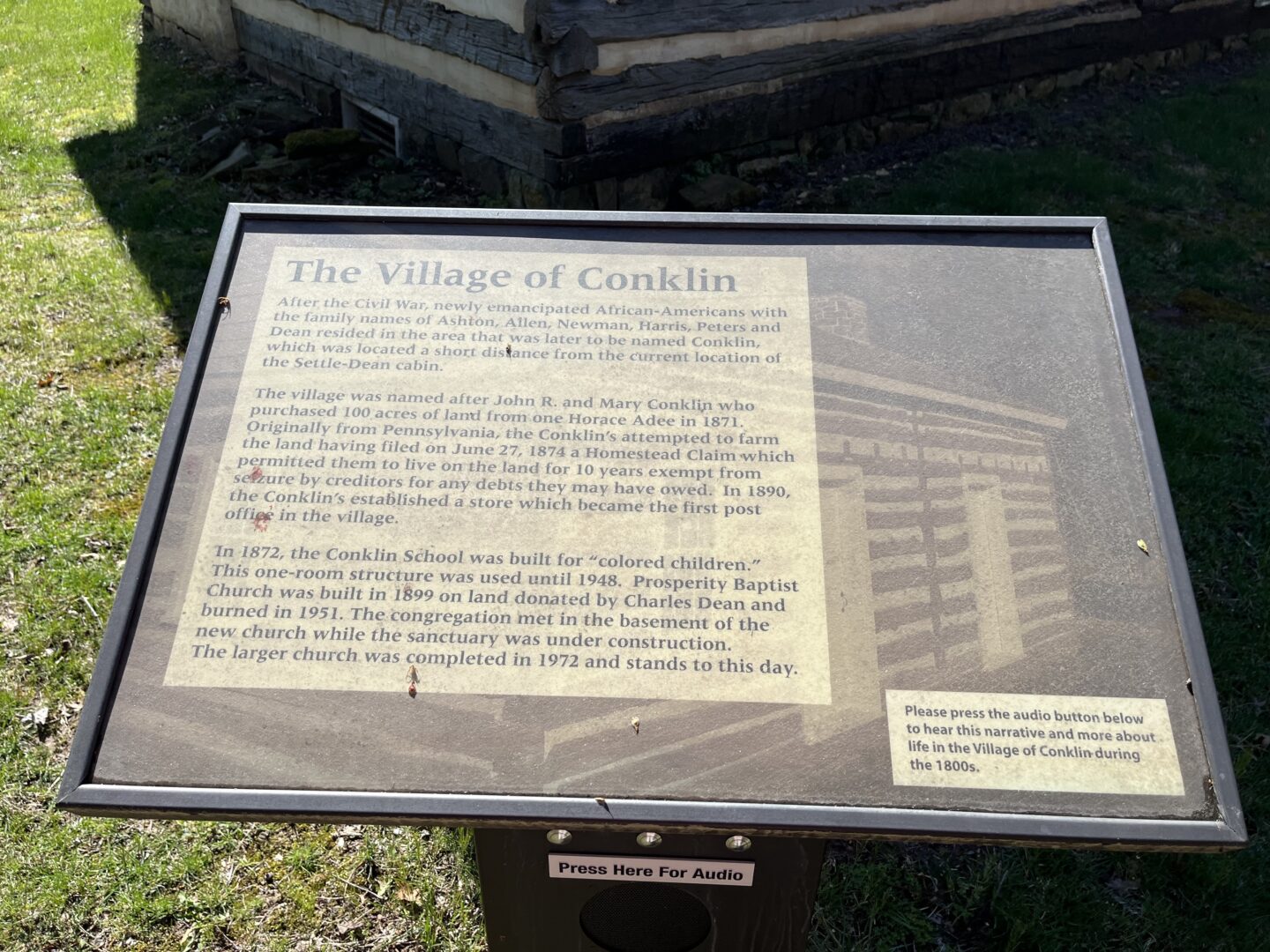
The Village of Conklin Marker at the Settle-Dean Cabin site. The marker provides a brief history of the Village of Conklin
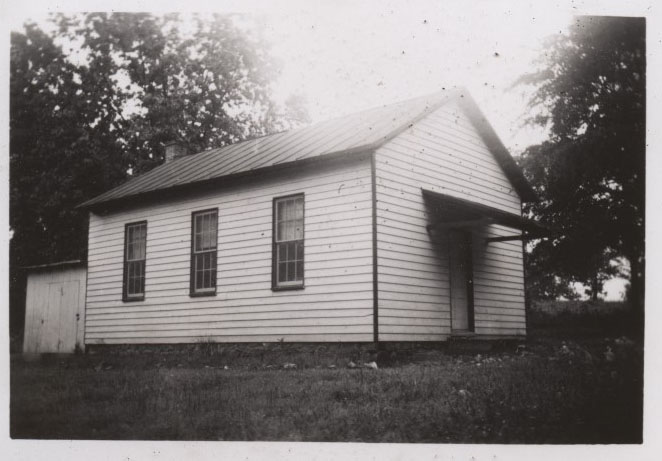
The Conklin Colored School, 1940. Image is part of Larry Roeder’s Conklin Village Project, Loudoun County

